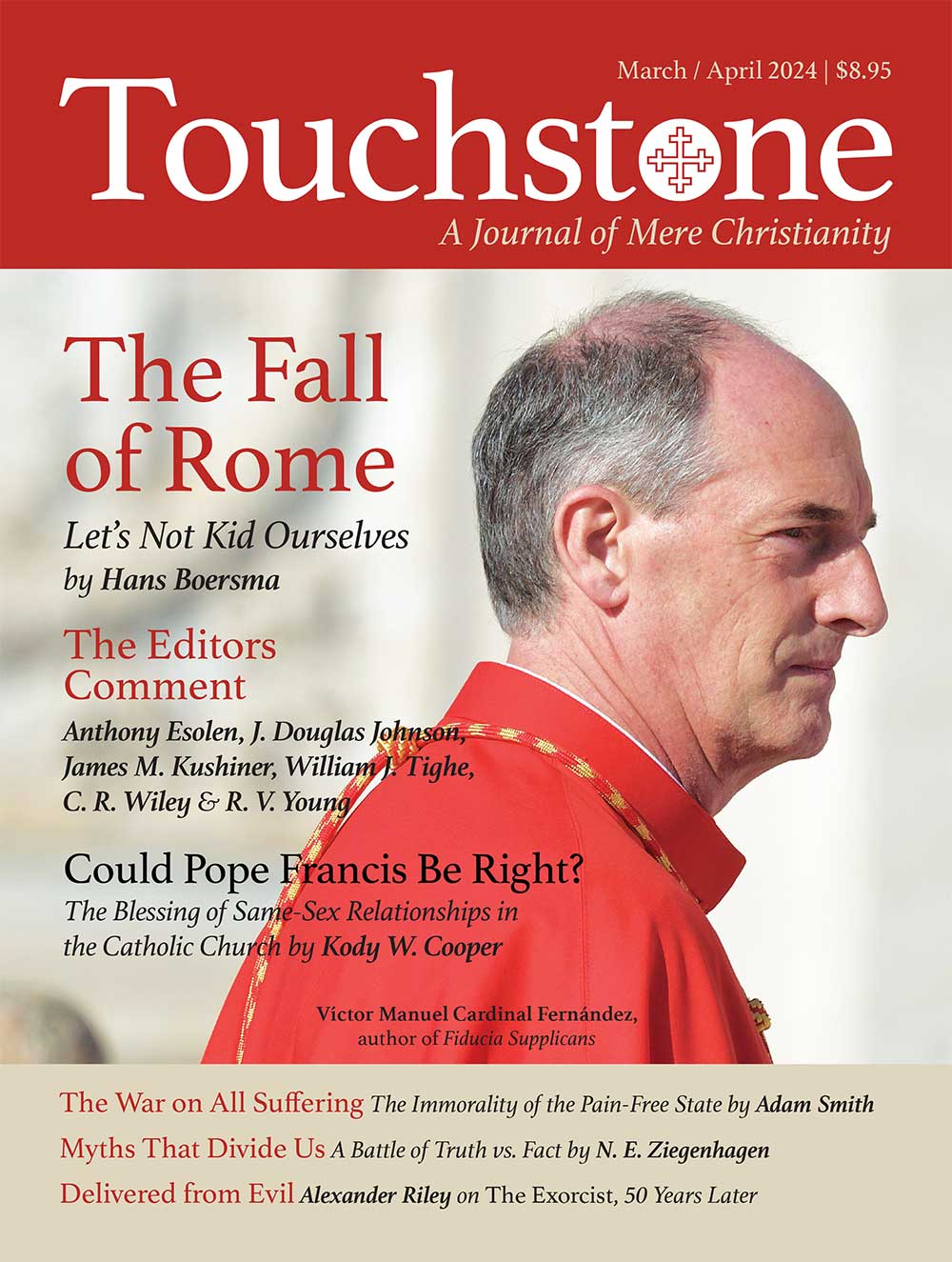All Things, Even This?
A Comment on the Editorial
There’s a debate among evangelical Protestants, and it goes something like this: “Should we blur the line, or make it as clear as possible?” This way of putting things owes something to Fuller Theological Seminary and the “Church Growth” gurus of the 1970s and 1980s. They drew on the social sciences to develop their theories, and people who have been influenced by them have given us “worship services” that include TED Talks for Jesus, laser light shows, and “seeker-sensitivity.”
The Apostle Paul did indeed say, “I become all things to all men, that by all means, I might save some” (1 Cor. 9:22). And while that might sound like line-blurring, the final clause tells us that he hoped at least some people would cross a very clear line and join him on his side of it.
I’m afraid that Fiducia Supplicans has blurred a line, and ironically, it has done so by parsing truth too neatly. As Carl Trueman put it recently, it is a “fog of distinctions.”
Canon lawyers assure us that nothing’s been lost. But there would be no need for their assurances if Fiducia Supplicans had spray-painted the old boundary stones neon orange instead of grass green.
What the world needs now, and badly, is a clear distinction between the way that leads to life and the way that leads to death. Fiducia Supplicans doesn’t help with that at all.
On the Areopagus, Paul demonstrated what “becoming all things” looks like (Acts 17). Addressing Epicurean and Stoic philosophers like a philosopher himself, he begins with truths that reasonable people can agree on. Then, demonstrating his knowledge of those schools (he was from Tarsus after all, a center of Stoicism), he brings up the thing that he knew they would object to at the very last moment—namely, that a man had been raised from the dead.
That drew a clear line, and Paul spelled out the implications and said, “Repent!” And some did, but others did not (17:32).
I’ve known men who have made 1 Corinthians 9:22 their “life verse” (as we put it in certain corners of Evangelicalism). Some of them have apostatized. That can happen when you blur the lines. I’m afraid that Fiducia Supplicans will lead to more of that.
C. R. Wiley is a pastor and writer living in the Pacific Northwest. He has written for many publications, his favorite being Touchstone. His most recent book, In the House of Tom Bombadil, is available from Canon Press. He is a senior editor of Touchstone.
subscription options
Order
Print/Online Subscription

Get six issues (one year) of Touchstone PLUS full online access including pdf downloads for only $39.95. That's only $3.34 per month!
Order
Online Only
Subscription

Get a one-year full-access subscription to the Touchstone online archives for only $19.95. That's only $1.66 per month!
bulk subscriptions
Order Touchstone subscriptions in bulk and save $10 per sub! Each subscription includes 6 issues of Touchstone plus full online access to touchstonemag.com—including archives, videos, and pdf downloads of recent issues for only $29.95 each! Great for churches or study groups.
Transactions will be processed on a secure server.
more from the online archives
calling all readers
Please Donate
"There are magazines worth reading but few worth saving . . . Touchstone is just such a magazine."
—Alice von Hildebrand
"Here we do not concede one square millimeter of territory to falsehood, folly, contemporary sentimentality, or fashion. We speak the truth, and let God be our judge. . . . Touchstone is the one committedly Christian conservative journal."
—Anthony Esolen, Touchstone senior editor










